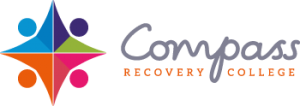What we do
There are now many Recovery Colleges across the UK. They all offer educational workshops about mental health and recovery, with the aim of increasing knowledge and self-management skills.
‘They enable people to grow within and beyond what has happened to them; discover a new sense of self, meaning and purpose in life; explore their possibilities and rebuild a satisfying and contributing life’
Recovery Colleges 10 Years On, ImROC
Recovery colleges have a foundation in co-production, bringing together lived experience and professional expertise in every aspect of their work. People are not “referred to” Recovery college, they select courses from a prospectus and attend what they choose to. Importantly, anyone can be a student at Recovery Colleges – people who use mental health services, people who are close to them, mental health staff, people from local communities, and people who are newly struggling with their wellbeing. The ethos is very much that everyone learns collaboratively.
How we help

Gale’s Journey
Gale was in his early twenties and was diagnosed with Autism accompanied by Anxiety and panic attacks after having been non-verbal for years. He had recently been discharged from Prospect Park and was engaged in Sport in Mind, where he met a Compass Volunteer. Through his connection and encouragement from his social worker, he gave Compass a try, as he had nothing else in the way of support at the time.
Gale did a range of mental health workshops over a 6-month period. These were held at new directions which had previously been his school, where he had not had good experience. It was daunting for him but seeing the Compass volunteer he knew helped him relax and participate.
The Difference Compass Made:
Because of his positive experience Compass at New Directions, Gale gained the confidence to return to his education there, completing his English and Maths GCSEs.
Next Steps:
In the following year, Gale started full-time work and quickly moved up onto a management program. During this time, he bumped into the Compass volunteer he knew and reconnected with Compass in a new way by providing a testimonial for the prospectus.
Gale then applied to be a volunteer with Compass. With support from Compass staff, he developed and delivered a successful workshop for young adults.
When a temporary Recovery Worker role was advertised at Compass, Gale applied and was successful. Using his lived experience to support and enable others has been very important to Gale.
Grace’s Journey
Grace came to Compass because it was suggested to her by another local service she was using. She had been in an abusive relationship for a long time and only identified the effect of this on her physical health. She had no awareness of her mental ill health. She just knew she was sick, and this scared her.
Through encouragement from her adult children, she started getting help from her GP and other support services, exited the relationship, and started her recovery.
Grace said, “I didn’t know what I would get out of it but I had hope”. She was struck by being given a notepad and pen at her first workshop, “something for myself”. She treasured the notepad and still has it.
Grace felt welcome, had the chance to meet people, gained both knowledge about mental and the sense “not being alone” in her challenges.
The Difference Compass Made:
For an ethnic minority woman coming out of an abusive relationship, there was a lot of fear about the future. The mental health workshops Grace attended all helped but it was Money Matters that had the biggest impact. It answered all her questions, reduced her anxiety and made her feel stronger.
“Now I don’t have fear. I can live by myself and live more independently”.
Next Steps:
Over the course of two years attending Compass, Grace took up studies and volunteering and was looking towards work, when she last attended.
Peter’s Journey
A member of Peter’s family had been hospitalized due to mental ill-health. It was a traumatic time for the family and there was a sense of despair. The hospital consultant suggested Compass to them.
Peter was looking for ways to improve communication with the member of his family who was ill, and to understand more about it. He also wanted somewhere to talk. His family felt on their own and found it difficult to talk to people they knew, fearing lack of understanding, judgement, or gossip.
The Difference Compass Made:
The offer of the safe space to talk.
“It felt like a safe space for people to gain confidence to talk and people genuinely listened”.
Next Steps:
Peter wants to continue to learn how to support his family member on their recovery journey, in the most positive way.
Kathy’s Journey
Compass was suggested to Kathy by someone using another service alongside her.
When Kathy first came to Compass, she was anxious, depressed, divorced and, on her own, caring for her teenager who has autism. She had lost the ability to think about herself.
Kathy wanted to know herself more, to understand more about her own mental health and that of her child. She undertook several workshops that addressed this need and found the lived experience of the tutors particularly helpful.
But it was the creative workshops that had the most impact, reconnecting her with her core identity as an artist. “My creative side has came out again. I am able to relax and enjoy myself. It helps me to be reminded that I’ve got creative ability”.
The Difference Compass Made:
Meeting other people, getting on with people and making friendships has made her feel more connected in the world. Being able to exhibit her work has given her new confidence.
Next Steps:
Kathy has identified a long-term goal to be recognized as an artist. She is exploring volunteering opportunities in art therapy to share the joy she has experienced and to help herself on that journey.


